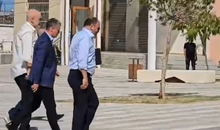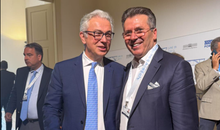
 Flash News
Flash News
"Europe is now holding its breath and repositioning itself"/DW: What does Donald Trump's victory mean for NATO?

Officially, Donald Trump won the US election only around noon on Wednesday (06.11.) German time. But by then, congratulations from NATO headquarters had already been sent across the Atlantic. New NATO chief Mark Rutte wrote:
We face a growing number of global challenges. These include an increasingly aggressive Russia, terrorism, strategic competition with China, and the growing rapprochement between China, Russia, North Korea, and Iran.
It can be assumed that Rutte has thought this text through very carefully and included some key words that will ring alarm bells with Trump. These are terrorism, China, North Korea and Iran. Ukraine, however, is not mentioned at all.
Open about what this means for Ukraine
This is an indication that not only Europe may need the US, but the US also needs NATO. After all, the US is the only one that has ever used Article 5 of the NATO treaty for support. "One for all" can apply to all.
Exit from NATO was no longer on the agenda of the American electoral campaign. On the other hand, the demand for more money for NATO was. Anyone who falls short of his two percent target will not be protected, Trump said at a campaign rally. Meanwhile, more than two-thirds of NATO countries spend two percent or more of their economic power on defense. Trump may seek more than two percent during his second term, however, given global conflicts.
Lack of political will?
For Agnes Strack-Zimmermann, chair of the Defense Committee in the European Parliament, the time for comfort is over in any case: "The new American President Trump will demand sternly that Europe make its contribution," she said after the election. Europe is a continent of about 450 million people with a strong gross national product and it can do this. But, according to the FDP politician, there is a lack of political will for this.
Germany, as the EU's largest member, will be particularly in demand. But German Finance Minister Christian Linder insists on the constitutional brake on borrowing, and countries like France and Italy are deeply in debt. So the question is where the extra money for defense will come from. Daniel Caspary, MEP from the CDU, calls for other priorities in the budgets of different countries. This is a topic that is likely to be addressed by the new European Commission.
Its Secretary General, Rutte, also notes that there is now more money for defense within NATO. "You are welcomed by a stronger, bigger and more united alliance," Rutte wrote to Trump. Pressure exerted by Trump during his first term also contributed, he admits.
But it's not just about the money. The big question that worries Europe is what will happen to Ukraine. Aside from Trump's vague hints that he would end the war within days or even hours, and a public leak of information that he occasionally speaks on the phone with Russian President Vladimir Putin, little concrete is known.
Will Trump stop sending weapons to Ukraine – or maybe even more? After all, 68 percent of NATO's military aid is ordered from American arms companies. No one knows how high on Trump's agenda the war in Ukraine is. In any case, this topic played almost no role in the electorate: only two percent were interested in foreign policy according to polls.
Maybe a deal could help
Therefore, the war against Ukraine remains above all a problem for the Europeans: "We are convinced that both the US and the EU have an interest in Ukraine being strong and independent," declared European Commission spokesman Eric Mamer on election day in Brussels.
And maybe the new American government will also be interested in the huge amount of raw materials that the Ukrainian underground holds: lithium, cobalt, titanium. Ukrainian President Volodymyr Zelensi has already declared that anyone who defends his country should have access to these raw materials. However, this would be an agreement entirely in the spirit of the American president-elect./DW
Latest news


What does Zelenskyy have more than Zegjineja?
2025-07-05 18:45:26

Fiscal peace, but at a cost
2025-07-05 18:00:10
'Bankers' tax evasion, Chinese CEO and former director jailed
2025-07-05 17:39:21
Kyle Walker joins English club on two-year deal
2025-07-05 17:20:24
Two cars collide on the Saranda-Delvina axis, 4 injured
2025-07-05 17:05:29
Touching gesture! Liverpool will pay Jota's family's salary until 2027
2025-07-05 16:45:18
The zodiac signs that cheat most often
2025-07-05 16:25:53

"I asked for the dismissals", Dredha tries to soften Rama's 'blow' in Vlora
2025-07-05 15:48:49
Bomb threat in Parliament, prosecutor: It was a lie
2025-07-05 15:22:28

Bardhi: The recount revealed how greedy Zeqine Balluku is in stealing
2025-07-05 14:44:29
Knife wound on the secondary road Tirana-Durrës, perpetrator sought
2025-07-05 14:37:54
Tears and pain, Diogo Jota is escorted to his final home
2025-07-05 14:21:34
Success starts with yourself! Simple ways to invest in personal development
2025-07-05 13:58:50
Unlicensed firearms found in apartment, 50-year-old arrested in Lushnje
2025-07-05 13:43:11

Tirana Court remands Skerdi Sina to prison
2025-07-05 12:59:34
Cocaine laboratory in Greece, here are the Albanians arrested and wanted
2025-07-05 12:40:16
Directed Justice/Vangjeli: SPAK does not investigate any scandal involving Rama
2025-07-05 12:22:03

Bomb alert, Police remove MPs and media from Kosovo Parliament building
2025-07-05 11:48:16
"The will of the people" and the irony of ordered resignations
2025-07-05 11:32:05
Summer drowning risk: How to enjoy the water without risking your life
2025-07-05 11:20:27
Fire situation in the country, 16 fires reported in 24 hours, 4 still active
2025-07-05 11:07:04
Car hits pedestrian at white lines, injured in serious condition in Vlora
2025-07-05 10:59:58
Mosquito-borne diseases are a growing problem in Europe
2025-07-05 10:44:13



One of Sweden's most dangerous and wanted criminals arrested in Turkey
2025-07-05 09:38:29
Foreign exchange/ How much foreign currencies are bought and sold today
2025-07-05 09:18:38

"Don't be influenced by the opinions of others", today's horoscope
2025-07-05 08:40:50

Morning Post/ In 2 lines: What mattered yesterday in Albania
2025-07-05 08:02:07

Trump says he's ready to raise tariffs to 70% on some countries
2025-07-04 22:35:52
Tre shenjat e zodiakut që do ‘pasurohen’ në Korrik
2025-07-04 22:05:09
Gaza War: Hamas Accepts US Proposal for 60-Day Ceasefire
2025-07-04 21:50:10
Autocracy in Albania, Fuga: Governance has gotten out of control
2025-07-04 21:40:51
Meta: Agriculture on credit, the new fraud!
2025-07-04 21:26:39




Vote recount in Durrës ends without changes
2025-07-04 20:12:54
Gas station explodes in Rome, 25 injured (VIDEO)
2025-07-04 20:00:20

These afternoon habits often sabotage weight loss
2025-07-04 19:39:28
Former Arsenal player Thomas Partey accused of rape
2025-07-04 19:24:21
Shepherd disappears without a trace in Delvina
2025-07-04 19:14:31

Bardho gave Zegjine's mandate/Braho: Unfair! It violates the electoral system
2025-07-04 19:01:08


Rapid developments in the Sultanates!
2025-07-04 18:00:06



Italy tightens rules for skateboard traffic
2025-07-04 17:20:18

Unusual for the time, dense fog covers the coast of Vlora
2025-07-04 16:48:01


Accident on the Shkodra-Lezhë axis, one dead and 3 injured
2025-07-04 16:14:19
Albania with fewer requests for asylum and Albanian citizenship in 2024
2025-07-04 16:06:57

Albania last for quality of life, DP: Technical government is the solution!
2025-07-04 15:42:30
Nico Williams says "No" to Barcelona, signs with Athletic Club until 2035
2025-07-04 15:33:35
Fires in the country, four fires are still active, what is the situation?
2025-07-04 15:24:20

Summer brings big changes for these 4 zodiac signs
2025-07-04 15:00:04
Osmani: MPs need to agree to a secret ballot for the Speaker of Parliament
2025-07-04 14:51:09
Serious accident on the Peqin-Elbasan axis, two injured
2025-07-04 14:37:56

GJKKO leaves in force the security measure for the head of the KPP
2025-07-04 13:58:17
Who will replace Ilir Meta and take over the leadership of the PL?
2025-07-04 13:50:36
Berisha: Dismissal of directors in Vlora, another act of 'scapegoats'
2025-07-04 13:41:46




Librazhd/ In a serious psychological state, the young man consumes pesticides
2025-07-04 13:05:07


Weapons trafficked from Kosovo to Albania, two arrested, 8 pistols seized
2025-07-04 12:33:28
Konsumimi i tepërt i çokollatës, ja cilat janë dëmet që shkakton në organizëm
2025-07-04 12:23:35

Fires in the country, 21 fires in the last 24 hours, 4 still active
2025-07-04 12:00:19
WB calls for debt transparency: Albania to publish details of every loan
2025-07-04 11:50:05
Changes in the State Police, new names expected to lead 5 police stations
2025-07-04 11:40:06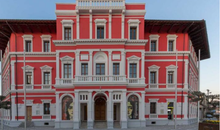
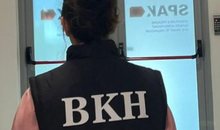
The race for the head of the BKH, the third phase on July 11
2025-07-04 11:20:23
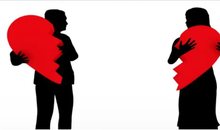
Toxic phrases that show your relationship is in trouble
2025-07-04 11:00:10